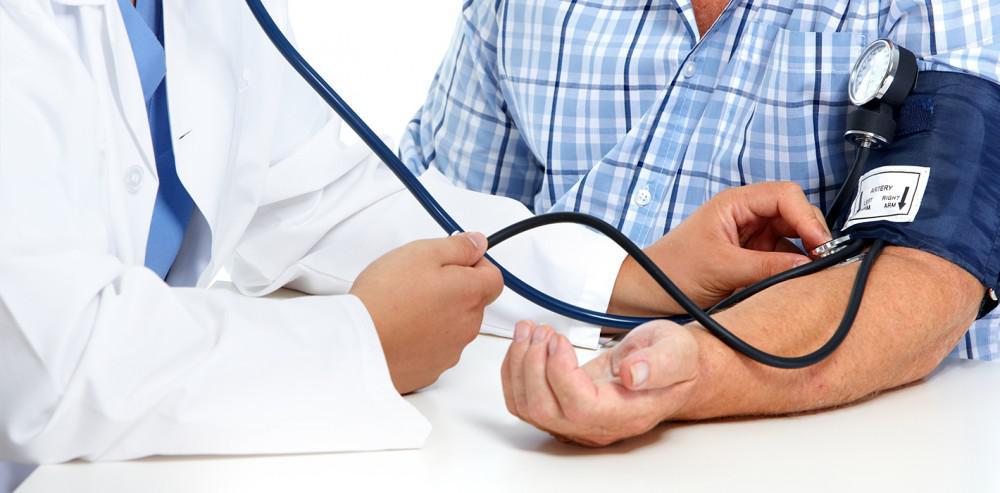Hypertension, or high blood pressure, impacts almost one in every three Americans (or 70 to 80 million people). Only around half of the persons in this group have their blood sugar levels under check.
High blood pressure is a serious and life-threatening disorder that impacts all of the major systems and can dramatically raise your chance of a heart attack, organ failure, or stroke if left untreated.
Symptoms
Even when blood pressure measurements are extremely high, high blood pressure is described as a “silent” condition since there are usually no indications. For years, high blood pressure might go undiagnosed, causing irreparable harm.
Regular blood pressure checks, on the other hand, can assist professionals to detect unsafe levels and providing the appropriate therapy. Beginning at the age of 20, the American Heart Association advises that blood pressure be checked every two years.
Causes
It occurs when the blood pumping via your arteries exerts too much pressure. There is no clear cause for several kinds of hypertension. It usually builds slowly over time.
Some drugs and health disorders, such as hormone imbalances, kidney problems, and sleep apnea, can cause hypertension.
Hypertension can occur in pregnant women as well after 4 and half months of pregnancy. Gestational hypertension usually recovers to a steady state after birth and poses no danger to either the mother or the baby.
It can, however, increase your risk of having hypertension later on in life. Gestational hypertension can raise your chances of preeclampsia, premature birth, and birth weight if it is severe. If you’re pregnant, talk to your specialist about whether your blood pressure needs to be monitored.
Types Of Hypertension
There are 2 kinds of hypertension:
- Primary hypertension. The cause is unknown. It is the most prevalent type of hypertension, which increases slowly over time.
- Secondary hypertension. An existing health condition, such as thyroid illness, kidney disease, or certain drugs, might trigger this.
Medication and lifestyle adjustments can typically properly control both types. If you have hypertension that doesn’t react to lifestyle modification and three or more drugs, you may have “resistant hypertension,” which is more difficult to address.
Since it frequently evolves gradually over time, it is commonly classified into “stages” that indicate the severity and course of the disease.
Systolic pressure (the first number) refers to the pressure imposed on your vessels when your heart beats, while diastolic pressure (the second, lower number) refers to the pressure placed on your vessels when your heart stops between beats.
- Normal blood pressure (120/80 or lower, according to age and degree of activities).
- Elevated Blood Pressure (readings of 120129 systolic, and less than 80 diastolic). Having elevated blood pressure readings makes you more likely to acquire hypertension at an older age.
- Hypertension stage 1 (130-139 systolic, 80-89 diastolic).
- Hypertension stage 2 (140 systolic and 90 diastolic). Doctors are likely to seek measures and medicines to assist lower your blood pressure at this point.
- Hypertension crisis (more than 180/120 blood pressure reading). A hypertensive emergency necessitates medical assistance right away. Wait five minutes and evaluate them again if you get a single reading that is higher than these numbers. Seek emergency medical help when both measurements are this high. Difficulty breathing, chest or back pain, lightheadedness, loss of sensation, lack of strength, or vision changes are all signs that you should call 9/11 right away.
Risk Factors
High blood pressure has several risk factors:
- African American ethnicity
- High blood pressure affects nearly 65% of people over the age of 60.
- Genealogy
- Men are more probable than women to develop high blood pressure in their middle years, whereas women are more prone to develop it later in life.
- Tobacco consumption, poor food, anxiety, lack of exercise, insufficient sleep, and alcohol consumption are all lifestyle variables.
- Overweight or obese during pregnancy
Prevention
Since numerous cases of hypertension have no identifiable cause, lowering your risk of having high blood pressure is difficult. You can, however, reduce your risk by:
- Diet and exercise to control your weight
- Eating a low-sodium diet that is high in nutrients and minerals including potassium, fibre, and protein
- Following your doctor’s recommendations for frequent physical exercise
- Limiting your alcohol intake
- Smoking cessation
- Getting adequate rest
Do not forget to consult the expert once you spot the symptoms at Smart Hospital.

